Stonehenge tunnel route altered to protect winter solstice view
- Published
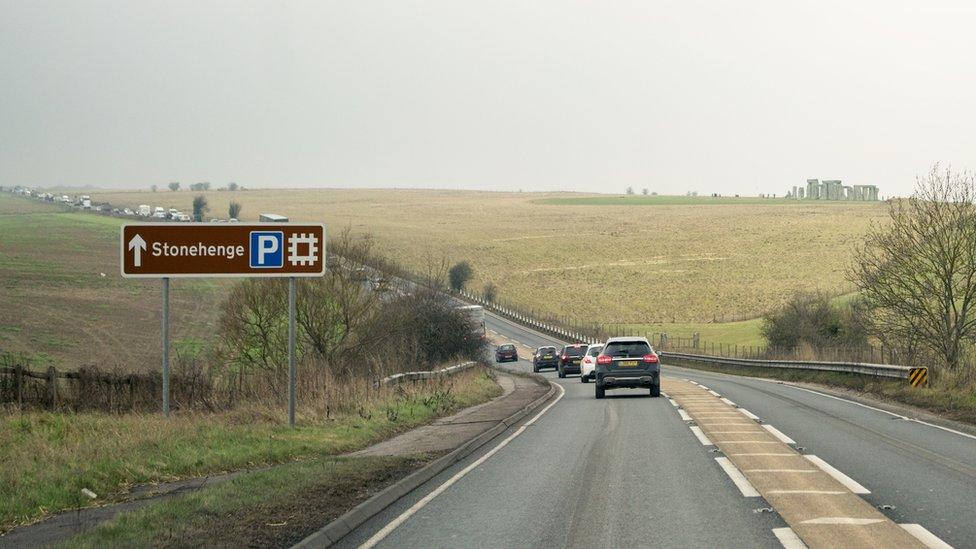
Highways England says a tunnel will cut congestion on the A303
A tunnel past Stonehenge will be dug largely along the route of the existing A303, the government has announced.
Previously it was planned to go south of the stones but there were concerns this would intrude on the view of the setting sun at the winter solstice.
Historic England, the National Trust and English Heritage said "if designed with care", this would "restore peace and tranquillity" to the landscape.
But campaign groups have called for a "complete rethink" to the plan.
They fear the work will mean the area will lose World Heritage Status after Unesco, the organisation that decides on such sites, said the tunnel should be "reconsidered".
Unesco has previously backed the option for a bypass to be built.
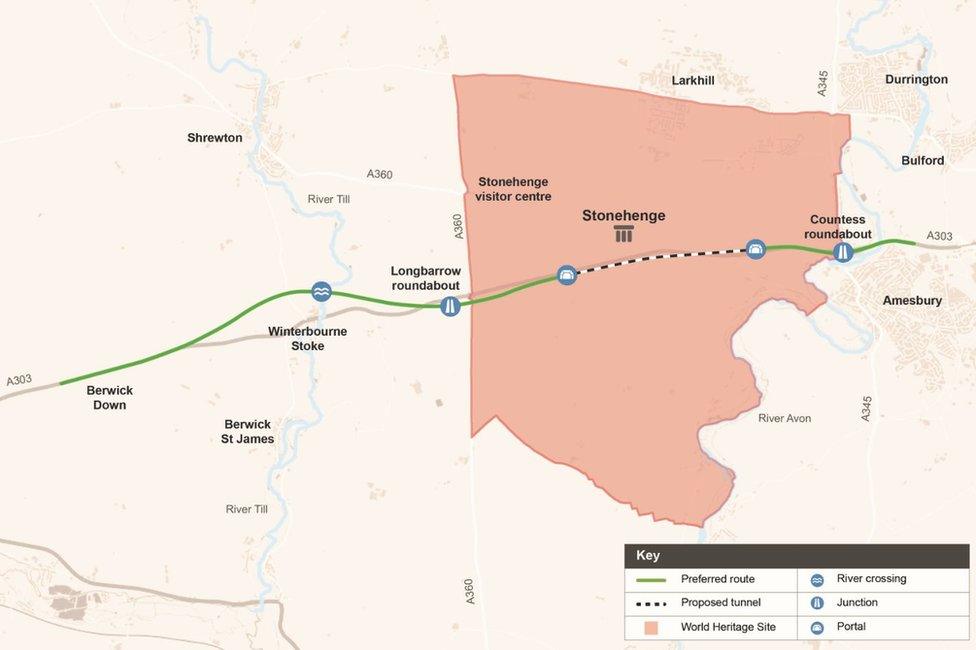
The western tunnel entrance will move 50 metres further away from the stones
Derek Parody, from Highways England, said the main difference to the previous proposals, affected the western end of the tunnel.
He said a public consultation showed many people were concerned that the road's position, and tunnel entrance, would cut across a number of key monuments in the area and affect the view at the winter solstice.
"What we've done is moved the route further north essentially addressing all of those concerns."
In a joint statement, Historic England, the National Trust and English Heritage, said the route will ensure the winter solstice alignment "will be unspoilt by lights and traffic from the road".

What is new in this plan?
A tunnel that is "at least" 1.8m (2.9km) long beneath the World Heritage site
The western tunnel entrance will move 50 metres further away from the stones
A new bypass to the north of Winterbourne Stoke
A new flyover at the Countess Roundabout - on the eastern side of the tunnel
Junctions to the A345 and A360 at either end of the tunnel

But the Stonehenge Alliance and Campaign for Better Transport said the project needs a "complete re-think, not a minor tweak".
"The potential risk of loss of Stonehenge's World Heritage Status casts shame upon our country and those responsible for caring for our heritage," a spokeswoman said.
Time Team presenter Sir Tony Robinson also described the project as "the most brutal intrusion into the Stone Age landscape ever".
He has accused the Department for Transport of paying "no attention at all" to the importance of Stonehenge.
Another campaigner, Andy Rhind-Tutt, has backed calls for a bypass saying the current A303 should remain as a toll road.
"The return on capital invested would pay for the new A303 dual carriageway [to the south of Salisbury]," the president of the local Chamber of Commerce said.
"The landscape could remain undisturbed and to satisfy National Trust and Historic England's desire to have peace and tranquillity, the toll road could be closed on special occasions."
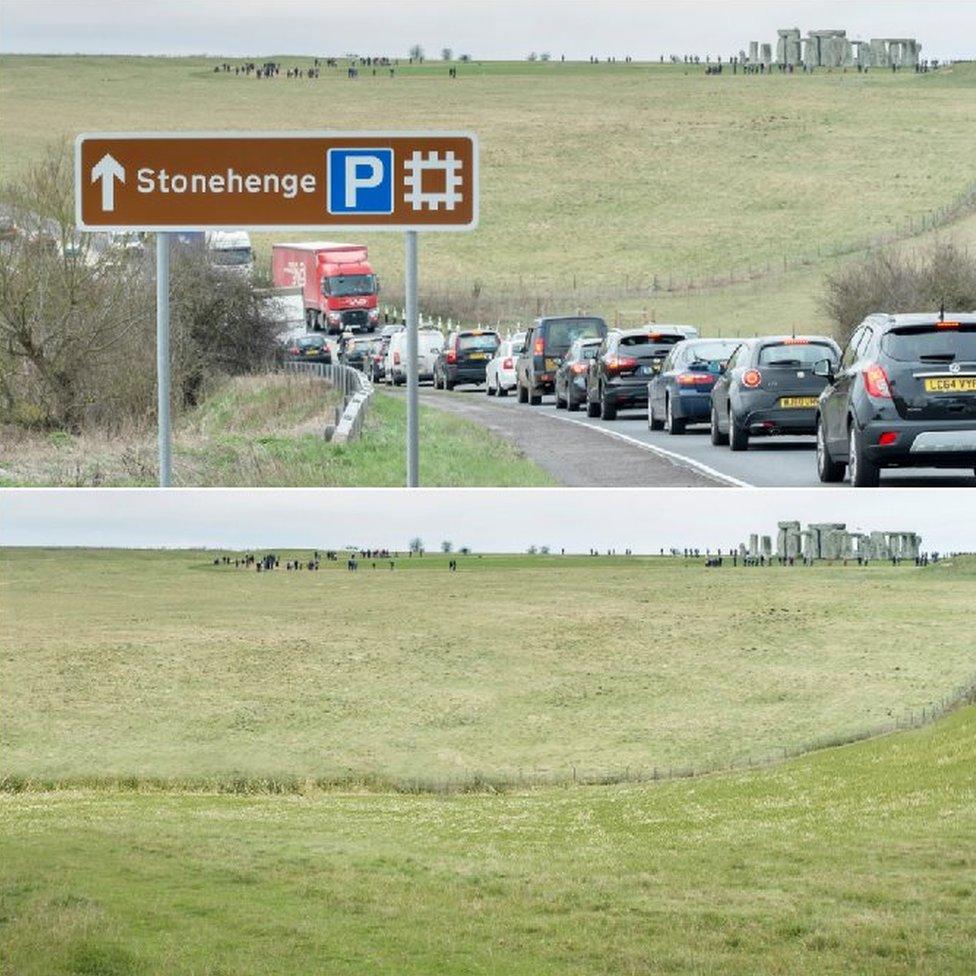
How Stonehenge could be viewed if the tunnel is built
But, the Department for Transport said the tunnel "will enhance the famous landmark".
"It will reconnect the two halves of the 6,500 acre World Heritage site which is currently split by the road, and remove the sight and sound of traffic from the Stonehenge landscape," a spokesman said.
The plan is part of £1.6bn upgrade to the A303, which links the M3 from London to the M5 to the south west of England.
Work is expected to start in 2021.
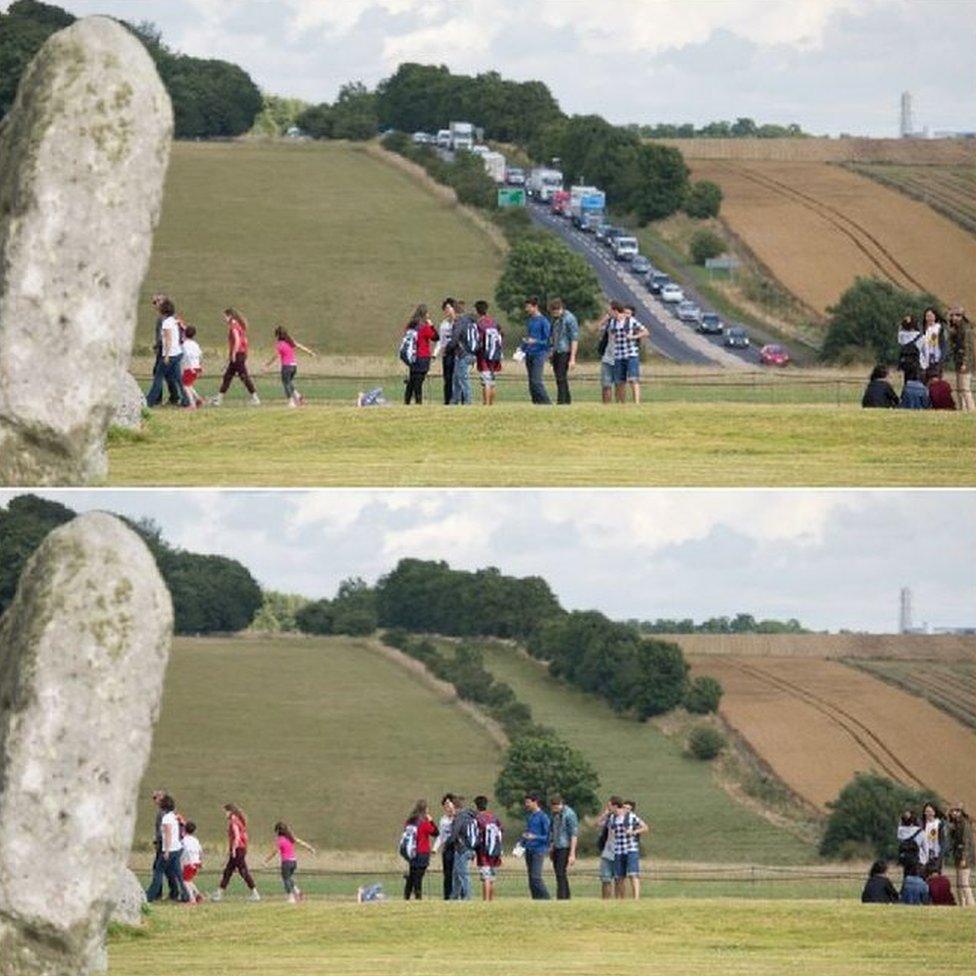
The Department for Transport said the tunnel "will enhance the famous landmark"
- Published15 June 2017
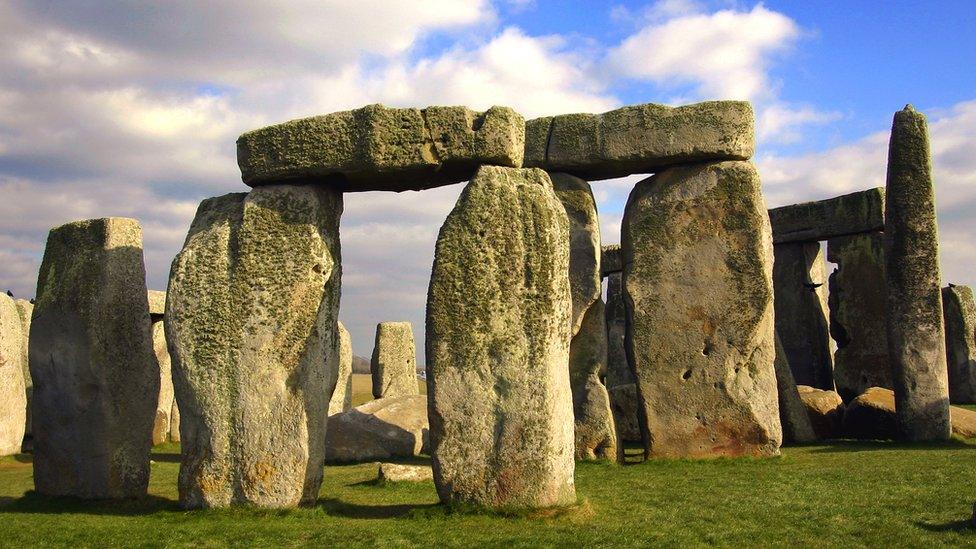
- Published6 March 2017
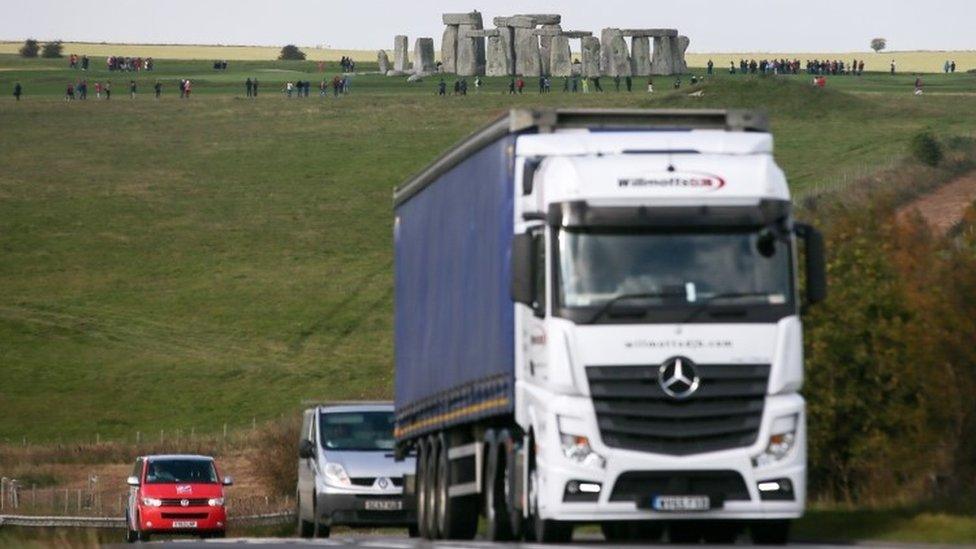
- Published24 January 2017
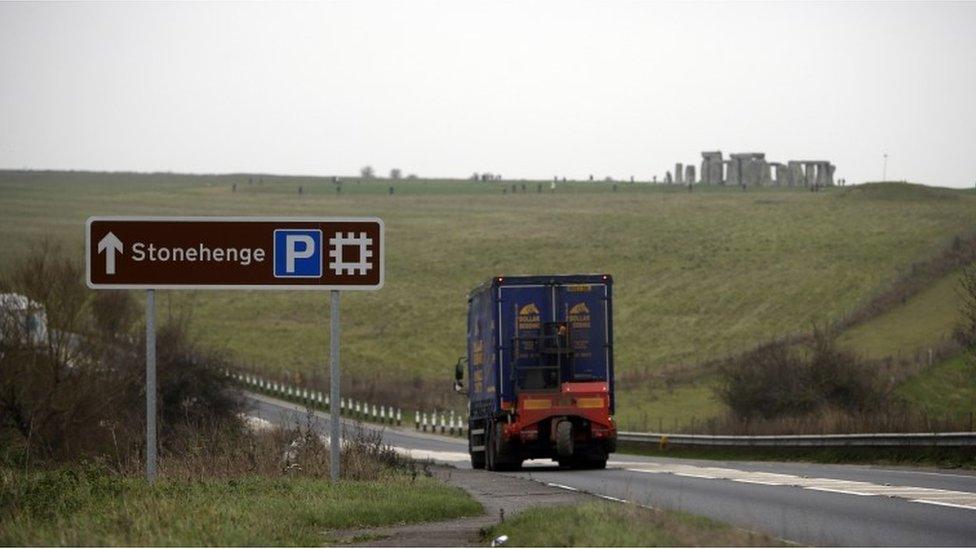
- Published12 January 2017
